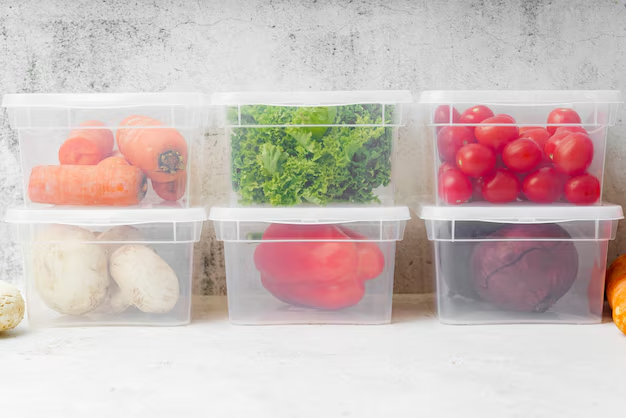How Long Does Homemade Hummus Last in the Fridge?
When it comes to quick, delicious, and nutritious spreads, hummus is undoubtedly a top contender. Whether you're a fan of the classic version or love experimenting with flavors, this creamy dip has something for everyone. But how long can you actually keep hummus in the refrigerator before it goes bad? Let's dive into everything you need to know to keep your hummus fresh and safe to eat.
🥄 Understanding Hummus Shelf Life
Hummus is made primarily from chickpeas, tahini, olive oil, lemon juice, and garlic, which are all relatively stable from a storage perspective. However, once blended together, the shelf life of hummus becomes something that requires a closer look. The key factors influencing its lifespan include:
- Type of Hummus: Store-bought hummus usually contains preservatives that extend its shelf life compared to homemade versions, which do not.
- Storage Conditions: Proper storage in a fridge set at the right temperature can significantly impact how long your hummus remains safe to eat.
Store-Bought vs. Homemade Hummus
Store-Bought Hummus:
- Unopened: Generally lasts until the "best by" date plus an additional week if the package is intact.
- Opened: Typically, it stays good for about 4-6 days when stored properly.
Homemade Hummus:
- Without preservatives, it is best consumed within 3-5 days. The absence of artificial preservatives means that homemade hummus has a shorter shelf life.
Recommended Storage Practices
- Re-sealable Containers: Always transfer hummus into airtight containers to prevent exposure to air and bacteria.
- Label with Dates: Mark the date of opening or making to keep track of its freshness.
- Store in the Coldest Part of the Fridge: The back of the refrigerator or the bottom shelf tends to be the coldest areas, ideal for storing perishable foods like hummus.
🧊 Signs Your Hummus Has Gone Bad
Eating spoiled hummus can lead to foodborne illnesses, so it's crucial to check for signs of spoilage before consumption:
- Smell: A sour or off smell is a definitive indicator that the hummus has spoiled.
- Appearance: Look for mold or a change in color. Any visible mold growth is a sign to discard the hummus immediately.
- Texture: A separation or overly watery texture can also signal spoilage.
When in Doubt, Throw It Out
If you suspect your hummus might be off, it's better to err on the side of caution and dispose of it. The potential health risks far outweigh the cost of a new container.
🍴 How to Extend the Life of Hummus
While hummus has a defined shelf life, there are a few strategies you can employ to extend its usability:
- Use Dry Utensils: Always use clean, dry utensils when scooping out hummus to avoid introducing moisture and bacteria.
- Add Olive Oil: A thin layer of olive oil on the top can act as a natural preservative.
- Avoid Double-Dipping: Ensures minimal exposure to contaminants.
📦 Freezing Hummus: Is It Worth It?
Freezing hummus is a viable option if you find yourself frequently unable to finish a batch in time. While it won't return the fresh, creamy texture once thawed, it does give you extended use of your favorite dip.
How to Freeze and Thaw Hummus
- Portion It Out: Freeze hummus in small, manageable portions so you can defrost only what you need.
- Seal Properly: Use freezer-safe bags or containers, leaving some space at the top as hummus expands when frozen.
- Thaw in the Fridge: Allow it to thaw slowly in the refrigerator for best results. Stir thoroughly once defrosted to even out the texture.
Using these methods, you can keep hummus frozen for up to 4 months.
🥗 Creative Ways to Use Older Hummus
If your hummus is nearing its expiration but still fresh, consider these uses beyond the standard dip:
- Salad Dressings: Thin it out with water or lemon juice for a creamy salad dressing.
- Stuffed Vegetables: Use it as a tasty filling for zucchinis or mushrooms.
- Hummus Pasta: Incorporate it into pasta dishes as a sauce base for a unique twist.
🔑 Practical Tips Summary
Here's a handy summary to keep your hummus as fresh and delicious as possible:
- 📆 Check Dates: Always track the opening or homemade dates for optimal consumption.
- 🧹 Clean Tools: Use clean tools to avoid contamination.
- 🌡️ Optimize Storage: Keep it in airtight containers in the coldest refrigerator spots.
- ⏰ Freeze: If you're unable to use it quickly, consider freezing for up to 4 months.
- 👃 Smell Test: When unsure, rely on smell and appearance for freshness checks.
By understanding these storage guidelines, you can enjoy your favorite hummus while minimizing waste and protecting your health. These steps ensure you make the most out of every delicious batch of hummus, from store-bought varieties to your homemade blends.
🌟 Closing Insight
Whether you prefer making your own or opting for the convenience of store-bought, optimal hummus storage is key to maximizing its shelf life while ensuring it remains safe to eat. By following these best practices, you'll keep your hummus fresh, reduce food waste, and ensure that your fridge is always stocked with this versatile, nutrient-rich dip. Hummus lovers, rejoice—your favorite snack just got a little easier to enjoy longer!

